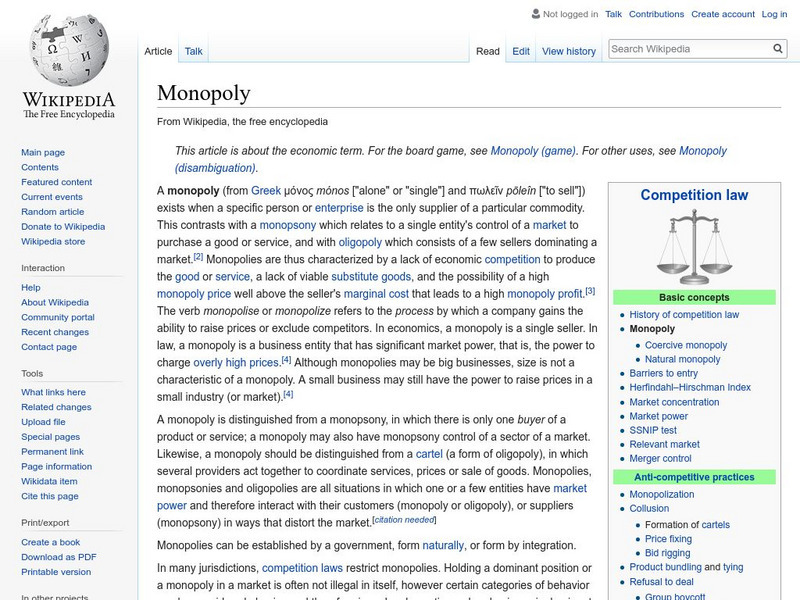Smithsonian Institution
National Museum of American History: Powering the Past: Emergence of Electrical Utilities in America
Looks at the history of electrical utilities in the United States from the time of Edison up to President Franklin Roosevelt.
Rice University
Principles of Economics: Regulating Natural Monopolies
This section from an Economics textbook explains why natural monopolies are allowed and how those monopolies can be regulated, usually by government, so that both companies and consumers are dealt with fairly.
Wikimedia
Wikipedia: Natural Monopoly
This entry offers a concise description of a natural monopoly, its history, how it occurs, and how it is regulated.
Wikimedia
Wikipedia: Monopoly
Provides a detailed examination of the characteristics of a monopoly, along with various kinds of monopolies, such as natural, local, coercive, and others.
Tutor2u
Tutor2u: Natural Monopoly
A description and example of a natural monopoly, along with a graph showing costs and product demand.
Council for Economic Education
Econ Ed Link: What Happened to Railroads?
Between the Civil War and World War II, railroads were one of the nation's most important businesses and an integral part of people's lives. In this lesson, students assume the role of detectives investigating why the rail companies...
Khan Academy
Khan Academy: Efficiency and Monopolies
Practice what you've learned about natural monopolies in this four-question exercise, including what makes a monopoly a natural monopoly, government regulation, and efficiency.
Other
The Progress Report: Natural Monopolies
An article by Fred E. Foldvary detailing the meaning and purpose of different kinds of monopolies. (1999)
Curated OER
Natural Monopoly
A description and example of a natural monopoly, along with a graph showing costs and product demand.







